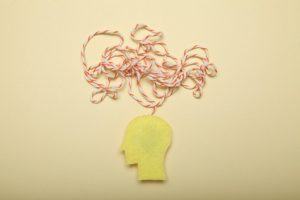Bien-Etre / Well Being
How to Practice Detached Mindfulness
Post Views: 654 The technique of mindfulness has recently experienced a rapid expansion. Indeed, it’s extremely successful in the context of mental ...
Bien-Etre / Well Being
Post Traumatic-Growth: Rising From the Ashes
Post Views: 671 Friedrich Nietzsche was one of the great philosophers and poets of the 19th century. In his masterpiece, Thus Spoke ...
Bien-Etre / Well Being
Interpersonal and Social Rhythm Therapy (IPSRT)
Post Views: 611 Living with bipolar disorder means living with significant instability, suffering, and frustration. For example, there are days when the ...
Bien-Etre / Well Being
Can Artificial Intelligence Identify Beauty? What Would Kant Say?
Post Views: 687 In recent times, artificial intelligence has made significant advances that have gone way beyond the laboratory door. In fact, ...
Bien-Etre / Well Being
The Social Contract Theory
Post Views: 590 Living in society has innumerable benefits. In fact, it’s necessary for our survival and development as a species. In ...
Bien-Etre / Well Being
The Idiographic and Nomothetic Approaches to the Study of Personality
Post Views: 556 The idiographic and the nomothetic are two different perspectives that coexist in the study of personality. Although the objective ...
Bien-Etre / Well Being
Seven of the Differences Between Compulsions and Obsessions
Post Views: 574 The differences between compulsions and obsessions outline the clinical profile of obsessive-compulsive disorder (OCD). This disorder ranks fourth among ...
Bien-Etre / Well Being
Sexsomnia: Sleep Sex
Post Views: 865 The human mind is fascinating and complex. Indeed, many of the alterations in normal cognitive and motor processes are ...
Bien-Etre / Well Being
Nine Keys to Healthy Family Dynamics
Post Views: 598 To have healthy family dynamics, you need to take care of each bond as if you were looking after ...
Bien-Etre / Well Being
The Generation Gap
Post Views: 535 Human beings share many characteristics. However, there’s no doubt that the sociocultural contexts in which we’re born, grow up, ...


























